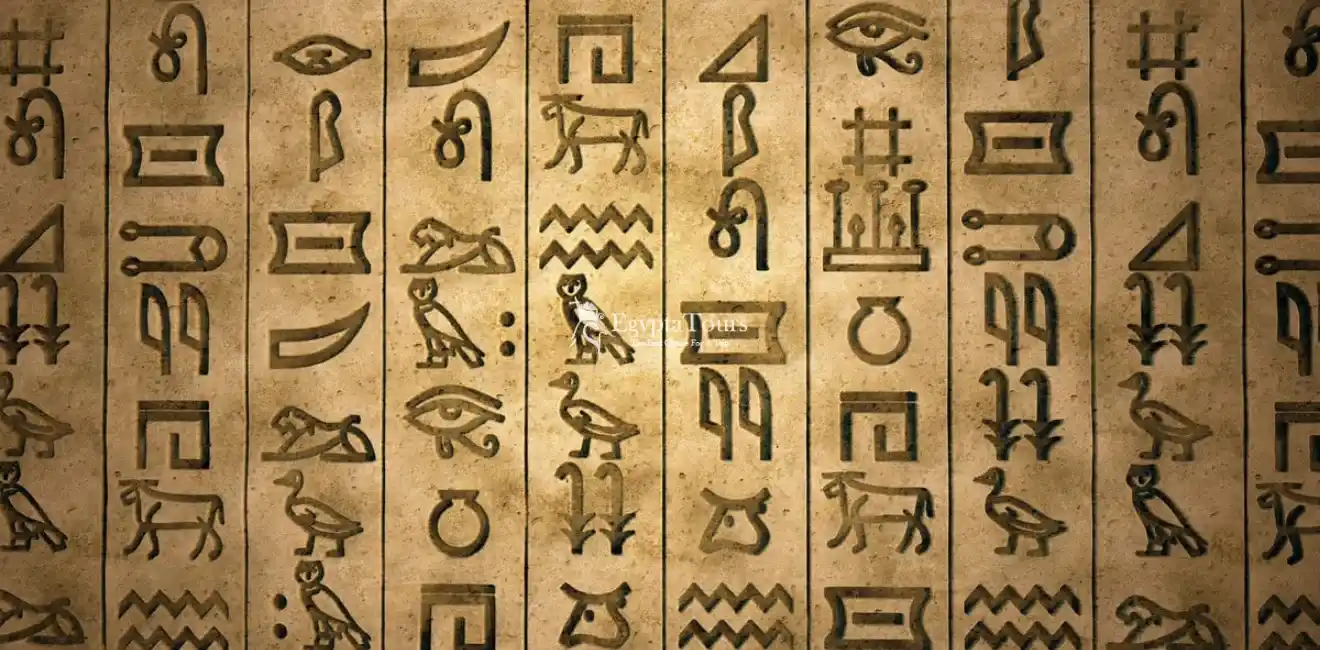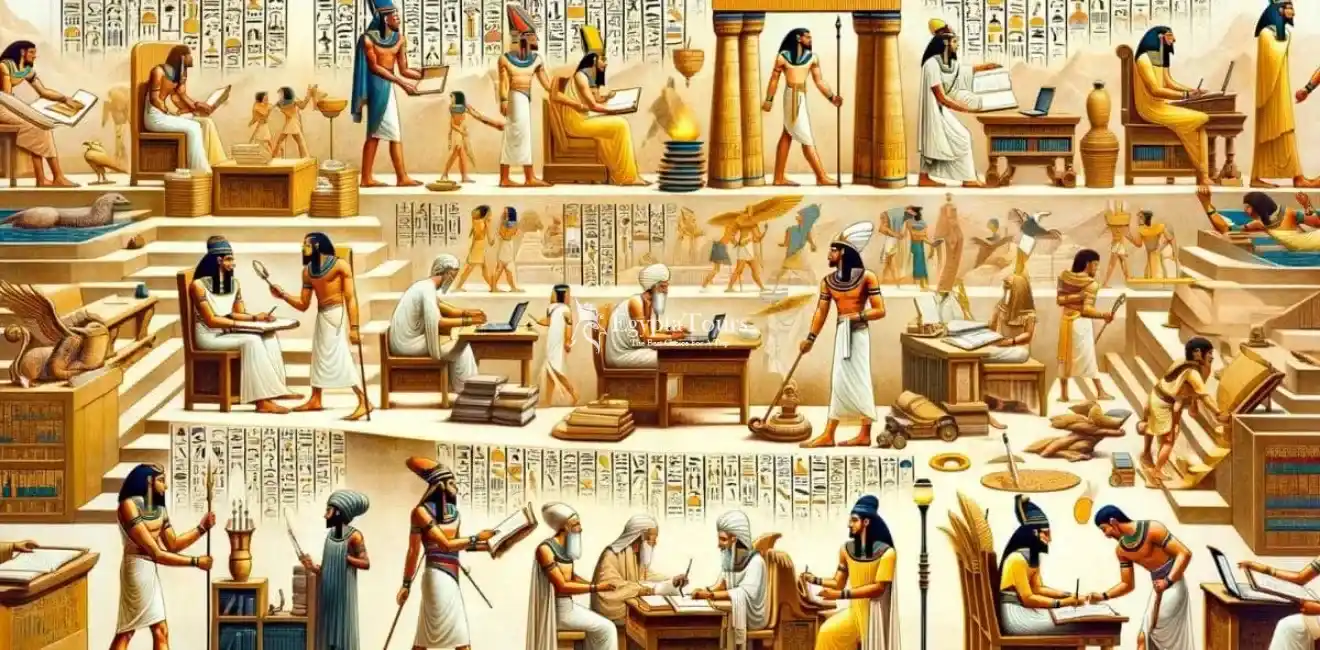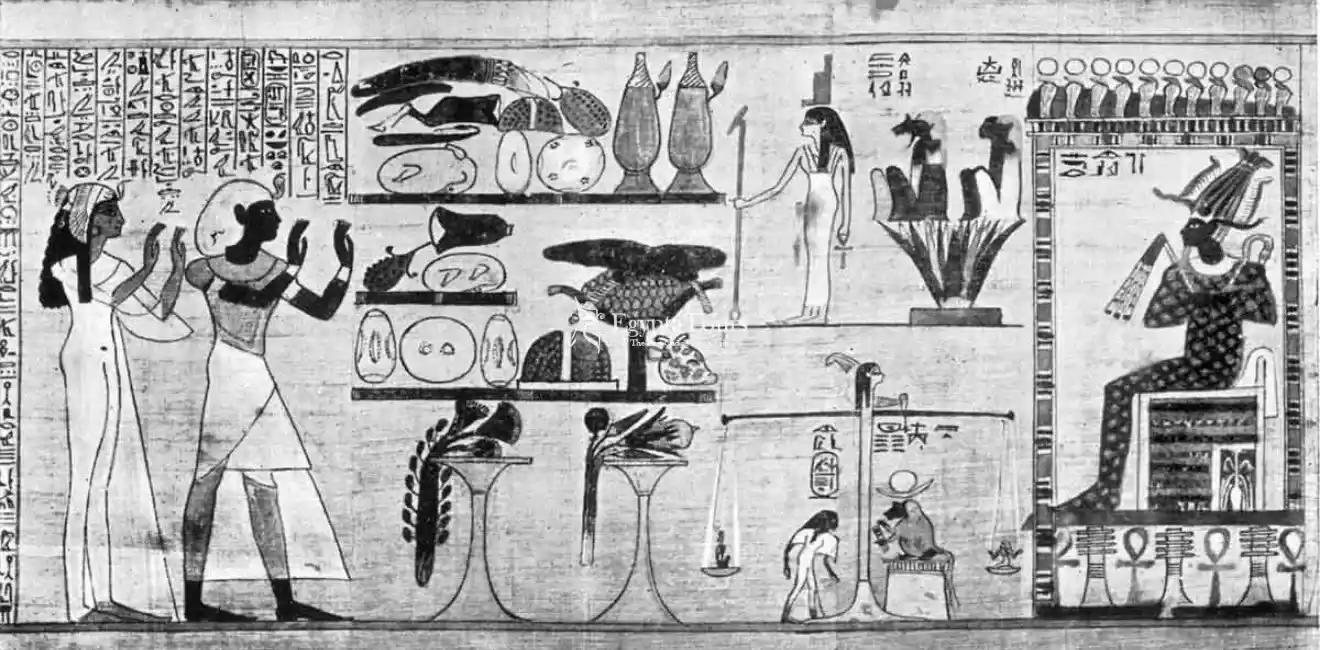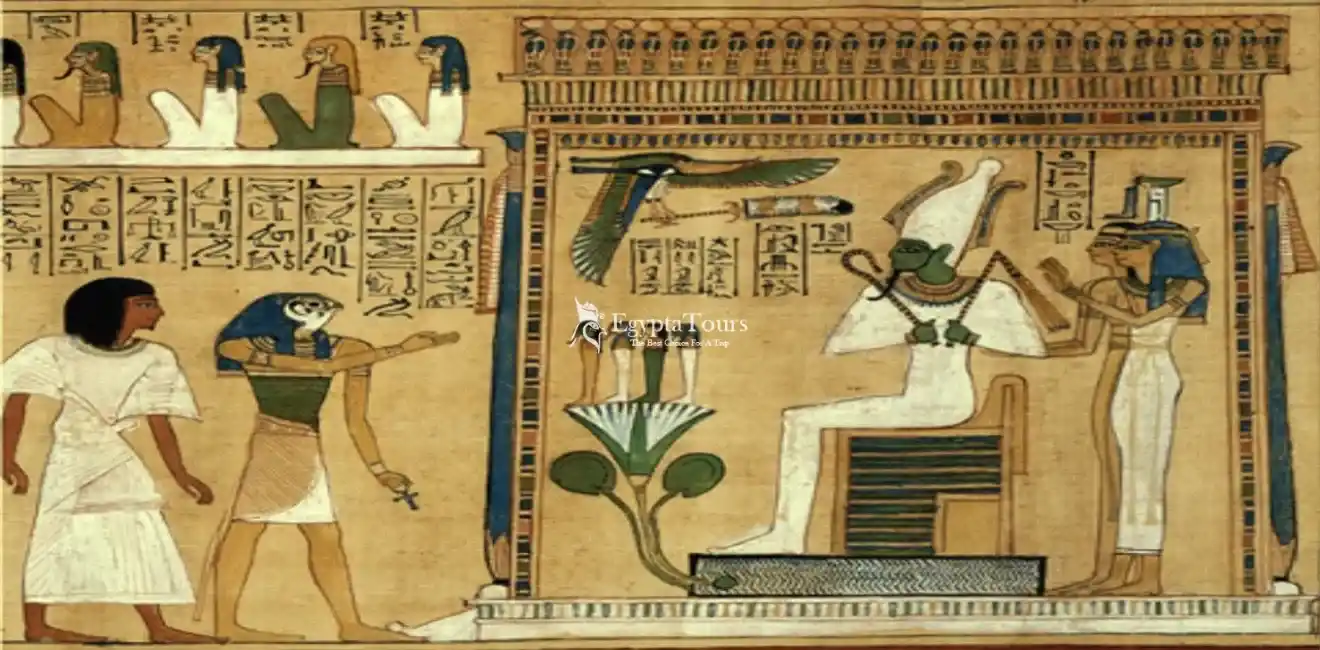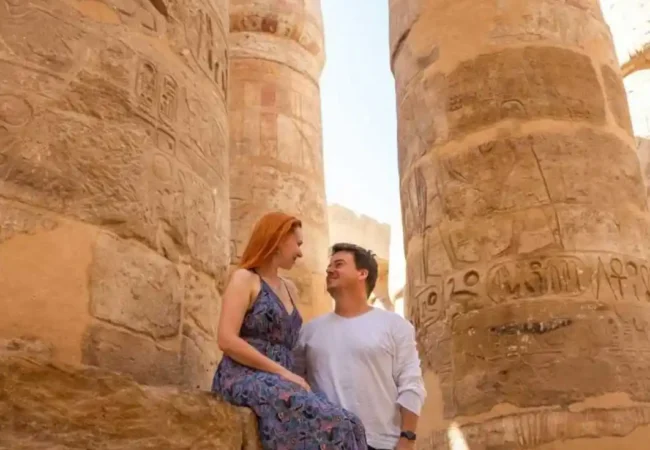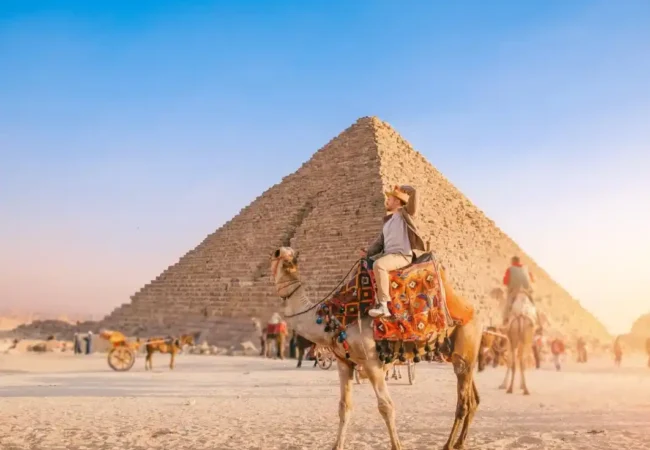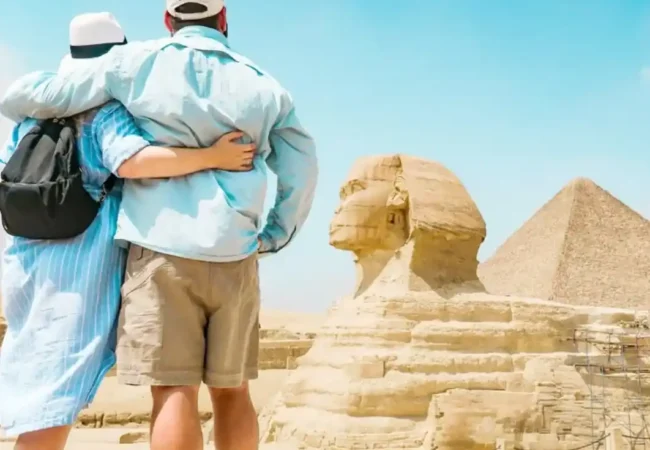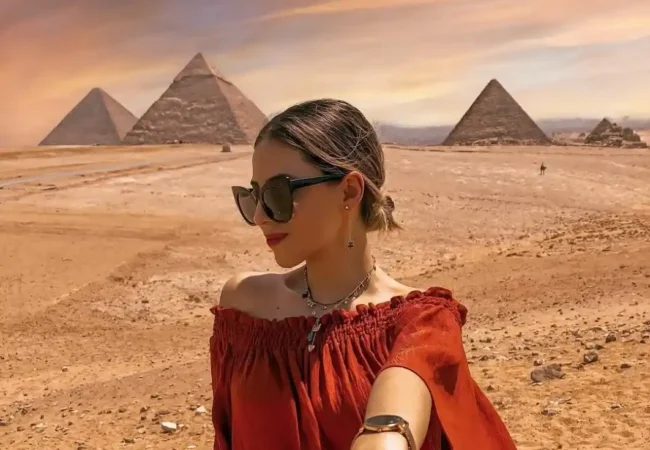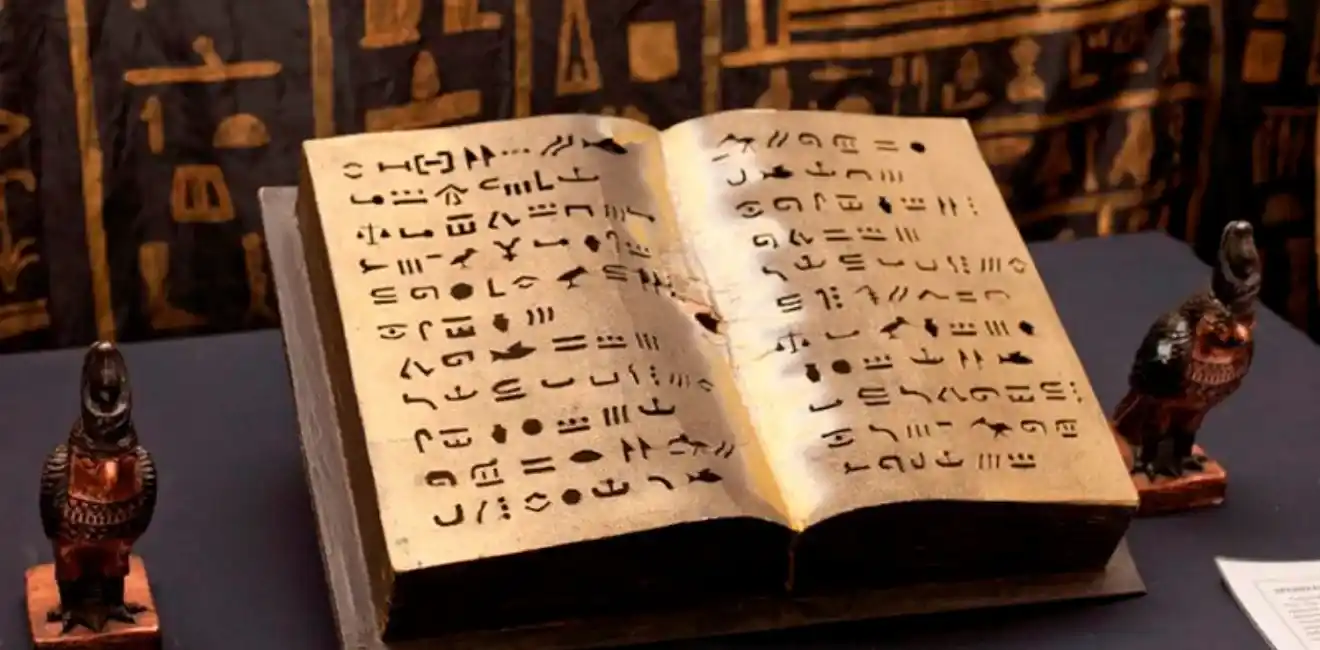
Ancient Egyptian Literature
Ancient Egyptian literature is considered the oldest in human history. Its emergence began with the Nile Valley civilization, which witnessed prosperity and development for nearly five thousand years.
It is not just a means of entertainment but a reflection of the ancient Egyptians’ ideas, beliefs, visions, and myths.
Its most prominent themes include wisdom, religious texts, autobiographies, and funerary hymns. It was recorded in the ancient Egyptian language, whether in hieroglyphic or hieratic script.
It is characterized by its rhetorical style and deep expressive ability. In this article, we will learn about ancient Egyptian literature and its developmental journey.
Ancient Egypt witnessed an exceptional development of writing systems, making it one of the first civilizations to innovate means of recording language. The development began with the hieroglyphic language, which was a pictorial system blending semantic and phonetic symbols.
With continuous development, two writing systems emerged: Hieratic, which was relied upon for administrative and religious texts, and the Demotic writing system, which was used in daily transactions.
The Prominent Role of Scribes in Egyptian Society
The scribe played a prominent role in ancient Egyptian society, which was represented in:
- The scribe had great importance in organizing and managing state affairs.
- They were part of the elite responsible for recording and documenting laws.
- They wrote official letters and were responsible for collecting taxes.
- They worked in all sectors, such as the army, economy, and government.
- They participated in copying various literary and religious texts.
- They preserved cultural heritage and recorded history in its various stages.
- The scribe was considered an important path to social advancement and an expression of sophistication.
- The prestigious status of the scribe was the most important factor for the continuity of Egyptian civilization.
Different Genres and Themes in Ancient Egyptian Literature
Ancient Egyptian literature is known for its diversity and richness and included the following:
Religious Literature
This includes funerary texts, among them the Coffin Texts, the Book of the Dead, and the Pyramid Texts, which spoke of punishment, reward, life after death, and prayers to ensure eternity, as they believed.
Mythological Literature
This narrates a variety of stories inspired by myths. Its forms include “The Tale of Two Brothers,” stories of superheroes, and “The Story of Sinuhe,” expressing fear of the unknown, loyalty, and more.
Wisdom Literature
This expresses a collection of social and ethical instructions directed by sages to students. Among the most important are the “Instructions of Kagemni,” the “Instructions of Ankhsheshonq,” and the “Instructions of Ptahhotep,” which focused on humility, self-control, and justice.
Political Literature
This includes a collection of texts and documents that recorded major victories and treaties, including the autobiographies of high-ranking political officials and the inscriptions that described the Battle of Kadesh, showing the Egyptians’ view of patriotism.
Philosophical Texts
Themes that expressed contemplation on life, such as the “Dispute between a man and his Ba (soul),” which discussed the meaning of life and suicidal thoughts, clarifying the humanistic aspect of ancient Egyptian thought.
The Impact of Literature on Ancient Egyptian Society
Ancient Egyptian literature had a great impact on society. It was not just a means of artistic expression but was relied upon in shaping societal traditions, values, and cultural identity. Religious texts, according to their beliefs, established burial rituals and reinforced faith in life and death.
The wisdom and advice contained in literature enhanced the upbringing of generations and instilled ethical principles, which helped stabilize society as a whole. Mythological literature also established the glorification of heroes and created a spirit of patriotism and belonging.
Literature was a means of societal advancement. All types of literature influenced Egyptian society, shaped its conscience, and contributed to the continuity of the civilization.
The Use of Literature in Education and Moral Upbringing in Ancient Egypt
Ancient Egyptian literature played an important role in the fields of education and upbringing. It was not limited to teaching reading and writing but also played a role in instilling behaviors and moral values through models of proper conduct, as seen in the “Instructions of Ptahhotep.” It included many themes, most notably obedience to parents and authority, self-control, honesty, and justice.
Preservation and Transmission of Ancient Egyptian Texts
The preservation and transmission of texts relied on several means that contributed to a literary and cultural heritage spanning thousands of years.
Preservation was done in one of the following ways:
- Papyrus scrolls: The most used method for preserving texts and transmitting them through time, characterized by their ease of storage and light weight.
- Clay and wooden tablets (Ostraca): A temporary method of recording used for education, specifically for writing trainees.
- Inscriptions on stones and walls: A method used in monuments, tombs, and temples to preserve funerary and religious texts according to their beliefs, and royal inscriptions that enabled scholars to decipher the language.
The Role of Temples and Libraries
The role of libraries and temples in ancient Egypt was multifaceted. Temples were centers for teaching writing and copying texts. Libraries were stores for preserving papyri, while temples were used to preserve sacred texts such as religious texts and the Book of the Dead.
The role of libraries was to classify texts, including medical and astronomical ones, which shows the intellectual richness of that era. The function of temples was to spread religious thought, as priests were responsible for interpreting texts and performing rituals according to their beliefs, while libraries’ mission was to promote education and knowledge transfer, thus transmitting heritage through the ages.
The Influence of Ancient Egyptian Literature on Later Cultures
Ancient Egyptian literature had a profound impact on the civilizations and cultures that followed it, due to its diversity and intellectual richness. Many ideas were transmitted to both Greek and Roman civilizations through religious and cultural interaction, especially during the Ptolemaic rule.
This later influenced Egyptian literature, as a set of similarities to some concepts appeared, including reward, punishment, and resurrection in their beliefs. The translation of Egyptian texts into Coptic and then into Greek also contributed to influencing other cultures.
Wonderful Modern Interpretations and Adaptations of Ancient Egyptian Literature
Ancient Egyptian literature has received several interpretations and adaptations in the modern era, which has shown its depth and advanced thought. The texts are now studied as part of the world literature curriculum from early times.
Adaptations of old stories into plays and novels have been made, such as “The Story of Sinuhe,” and many contemporary fictional works have reimagined the symbols of Egyptian myths. Modern-era researchers have relied on many sciences such as psychology and sociology to deepen their understanding of the texts.
Conclusion
Ancient Egyptian literature included several themes and a remarkable development, which helped in its transmission to other cultures and its influence on them. Recently, it has received many adaptations and interpretations that have made the texts studied in the present time.
FAQs
What are three types of literature in ancient Egypt?
Literature was diverse, including religious literature which encompassed beliefs, moral literature which dealt with upbringing, and finally, narrative literature which pointed to human experiences.
What are the characteristics of Egyptian literature?
Its characteristics include a focus on life and death, wisdom, and symbolism. It also relied on a sophisticated language that focused on morality, religion, and the idea of eternity according to their beliefs.
How literate was ancient Egypt?
Literacy in ancient times was limited to state employees, the administrative elite, priests, and some classes of scribes. Education was directed at those who would work in official positions.
What is the famous literature of Egypt?
Famous literature in ancient Egypt included “The Story of Sinuhe,” “The Book of the Dead,” “The Tale of the Shipwrecked Sailor,” and the “Instructions of Ptahhotep,” which highlight humanistic thought.
What are the three main types of literature?
Literature includes three main types: the novel, poetry, and the short story, which represent the basic axes of modern literature (not ancient Egyptian).







